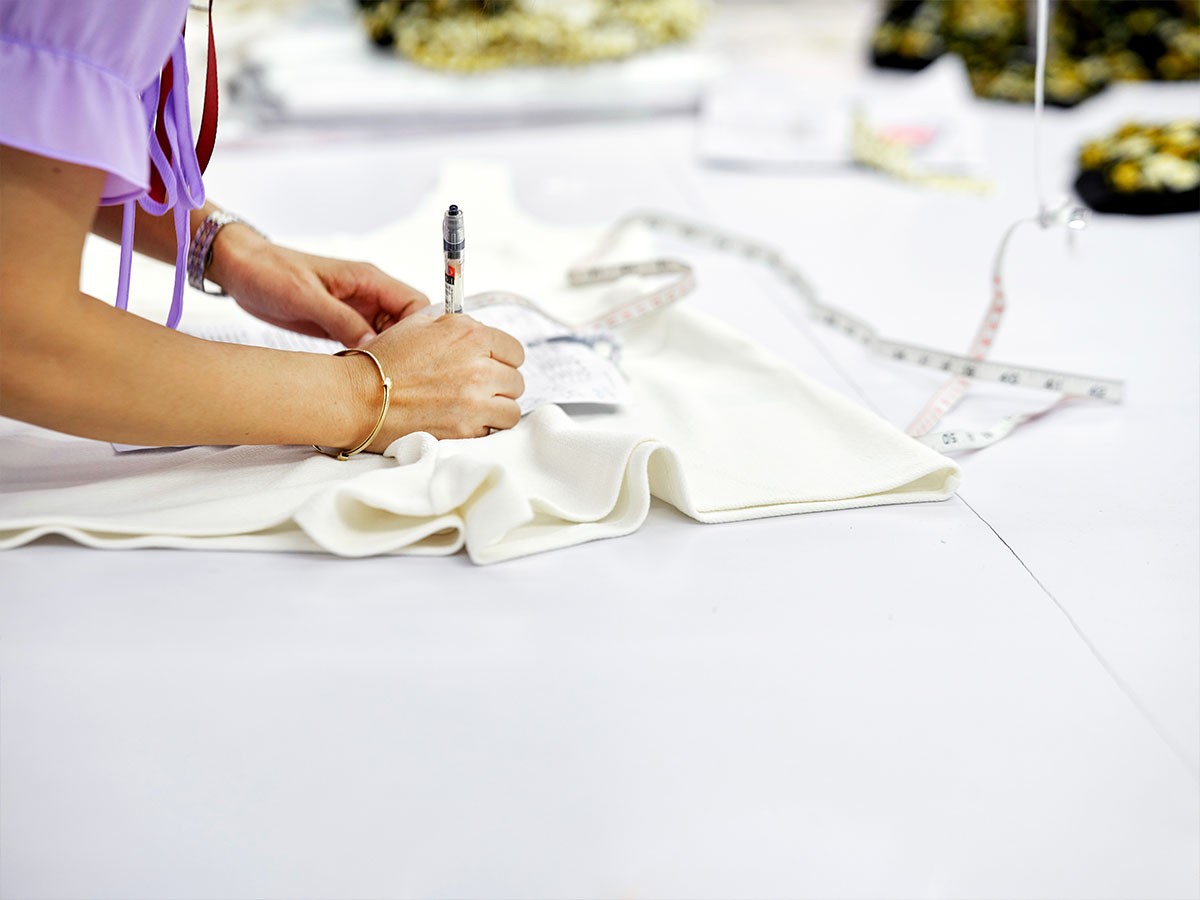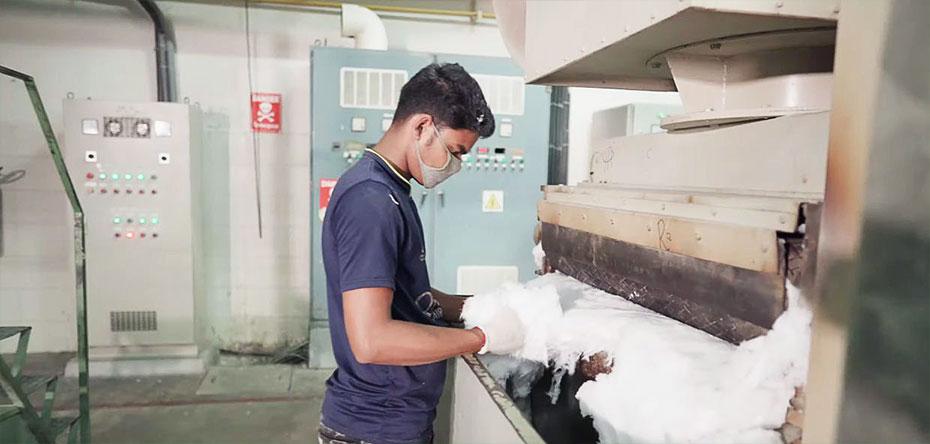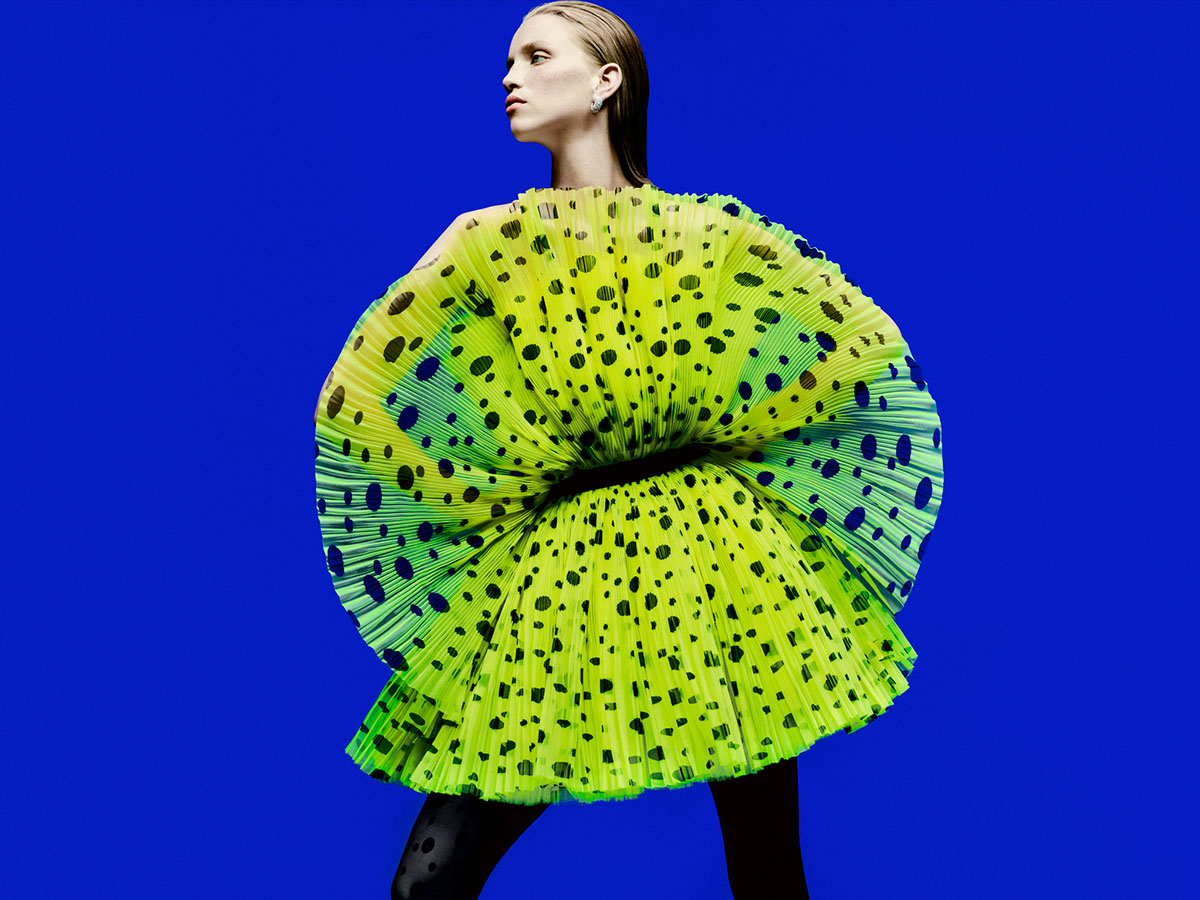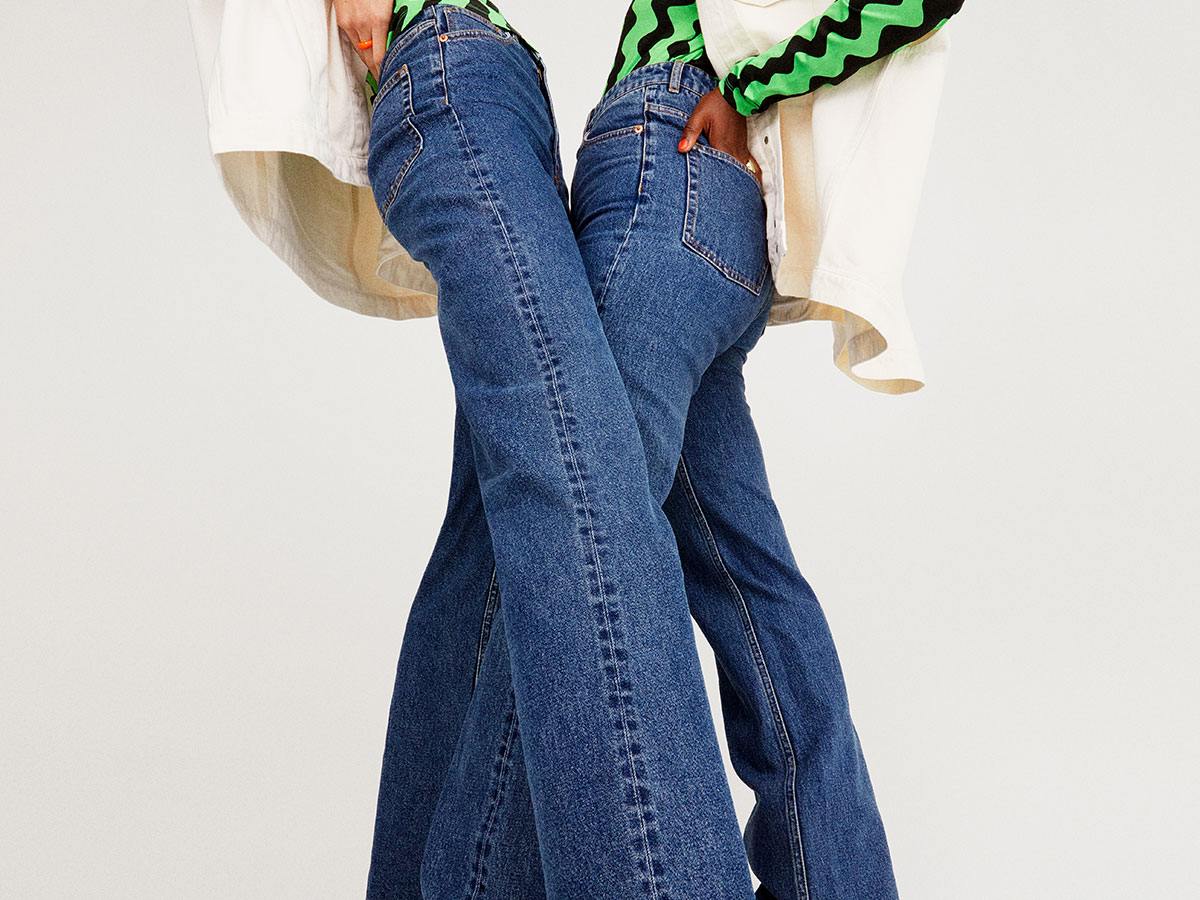At H&M Group, we are committed to becoming a circular business. To make this transition we need to design products that last longer, are easier to recycle and that are made from safe, sustainably sourced, or recycled materials.
Talking circularity
Report stories
Speeding up the shift to a circular economy
Collaboration has become increasingly important to our sustainability work. It is no secret that the environmental challenges we face today are too complex for any company to tackle alone, no matter their size. This is why H&M Group has supported and been a proud strategic partner to the Ellen MacArthur Foundation (EMF) since 2015.


Andrew Morlet, Chief Executive of the Ellen MacArthur Foundation, and Leyla Ertur, Head of Sustainability H&M Group
Together with EMF, we explore opportunities to apply circular economy principles across the H&M group organisation and its supply chain. This includes exploring solutions to create a closed-loop for textiles, where used garments can be recycled into new ones — but also setting targets to help a circular fashion industry stay within the planetary boundaries using a science-based approach. It also means applying circular economy principles for both commercial goods and non-commercial goods, such as packaging.
Conscious decisions
“Customers expect brands to take conscious decisions and move towards a circular economy. This will not be something you choose to do; this is something you will have to do. We started this journey 15 years ago, and I think we’re in a quite good position to at least understand the challenges in front of us. Of course, there are huge steps to take, but I believe we will start to see the impact of our efforts when it comes to climate, biodiversity, and resource management. I also believe that it will help us in our growth goals, because I truly believe our customers will be onboard with us”, says Leyla Ertur, Head of Sustainability, H&M Group.
H&M Group and the EMF
H&M group is a strategic partner of the Ellen MacArthur Foundation‘s (EMF) network that brings together businesses, innovators, universities, and thought leaders to build and scale a circular economy. Additionally, we are a core partner of EMF’s Make Fashion Circular initiative, which works to create a textiles economy fit for the 21st century. We are also a signatory to their New Plastic Economy Commitment, which sets out three major goals in order to establish a sustainable use of plastics packaging and have signed the UN Treaty for Plastic pollution, an initiative founded by WWF and EMF.
A positive trend
Today, we see a positive trend in customer behaviour, where more and more customers want to know where and how the garments are made, and how they can contribute to a sustainable fashion future.
“There’s clearly a significant part of society that are looking for better solutions and better products. There’s a huge number of people who are really engaged in the climate and natural systems agenda, and they are looking for companies that are innovating, companies that are enabling them to be part of the solution”, says Andrew Morlet, Chief Executive of the Ellen MacArthur Foundation.
“And I think over the next 10 years, we’re going to see more and more companies wanting to offer customers better choices that are pro-nature, that are actually building regenerative natural systems, that are contributing to the climate agenda, that are thoughtfully conceived to eliminate waste and pollution. That keep materials and other resources in use longer. What’s interesting is that H&M Group and the other companies we are working with are fully on this agenda. They’re starting to reorientate it into their strategy and their goals, and we know that when an entire industry orients towards this type of innovation, it can move very quickly — the industry can play a really important role in the shift”, he continues.
Part of the solution
Andrew Morlet also sees opportunities for companies that want to take part in this journey. “We’re going to see a very clear differentiation of the companies that both recognise that they’re part of the problem, but also a crucial part of the solution. And I would hope that in the next decade, we will start to see a massive scale-up in regenerative agriculture and regenerative production because companies like H&M Group and others are actually designing that into the core of their business. And that’s a massive shift. If companies are saying ‘I want the biproduct of my industrial activity to have a positive impact on nature’ — that has incredible potential to move things quickly”.
As proud partners of the Ellen MacArthur Foundation, we couldn’t agree more.
Circular economy
An economy that is restorative and regenerative by design. Underpinned by a transition to renewable energy sources, it is based on three principles: design out waste and pollution; keep products and materials in use; and regenerate natural systems. Transitioning to a circular economy entails gradually decoupling economic activity from the consumption of finite resources. This represents a systemic shift that builds long-term resilience, generates business and economic opportunities, and provides environmental and societal benefits.
A circular economy is a systems solution framework for global challenges, including climate change and biodiversity loss. By design, circular economy solutions eliminate waste and pollution by circulating products and materials.




